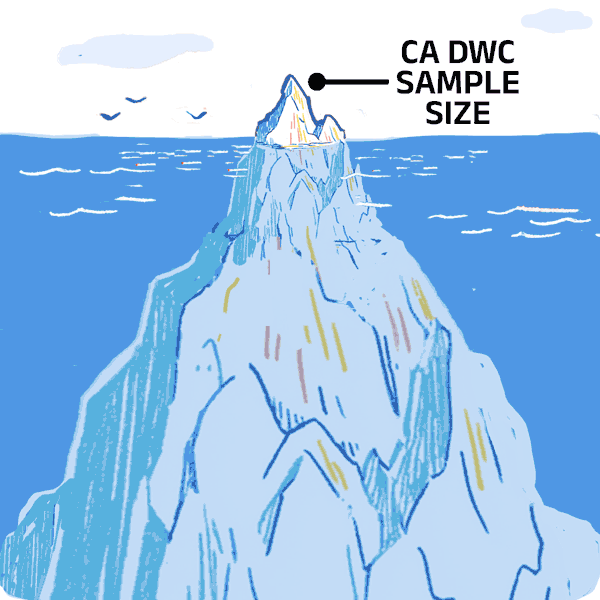3DCA Decision Places Emphasis on RFA Timelines
On Wednesday afternoon, the California 3DCA, or Third District Court of Appeal, issued a ruling in the Ramirez v. Workers’ Compensation Appeals Board case. This is an interesting case for a number of reasons. Most importantly, it leaves the WCAB with just one avenue to intervene on an Independent Medical Review (IMR) decision – and it all has to do with untimely Utilization Review (UR) responses to Requests for Authorization (RFAs).
In filing his suit, injured worker Daniel Ramirez expressed his frustration with a UR decision to deny treatment that had been subsequently upheld through independent medical review. The case called into question the constitutionality of the Utilization Review and IMR processes, and focused on whether the medical reviewer brought bias or a conflict of interest into their assessment.
The court decided unanimously that the current independent medical review (IMR) process is constitutional, and that the WCAB does not have the authority to review disputed UR decisions.[1] The reason? Such decisions are dependent on “medical necessity,” which can only be determined by the physician or medical professional performing independent medical review. An earlier case – Stevens v. WCAB – led to the same conclusion at the First District Court of Appeal in 2015.
The decision is being lauded as a major win for the legislators behind Senate Bill 863, whose reforms have brought considerable speed to the once-sluggish process of resolving medical disputes. It also reinforces a critical concept for anyone involved with California workers’ compensation billing: It’s more important than ever to understand utilization review timelines to respond to RFAs.
We’ll start with some background, then move on to response requirements for different types of RFAs.
In Dubon v. World Restoration II (2014), the WCAB held that “a defendant’s UR decision will be deemed invalid only if it is untimely or suffers from material procedural defects that undermine the integrity of the UR decision.”[2] The upshot? Untimely UR decisions – or untimely communication of those decisions – are considered invalidated. Timing is essential for all components of required UR communication.
Below is a summary of the utilization review communication requirements for the three types of utilization review.
Expedited Decisions
When an injured worker faces an immediate threat to their health, a treating physician may demand an expedited utilization review decision by checking the ‘expedite’ box on the RFA form. For RFAs marked as expedited, the utilization review decision must conform to the following time requirements:
- The decision must be completed in no more than 72 hours, with the first hour being the hour after receipt of the RFA. (Depending on the condition of the injured worker, a shorter timeframe may be necessary.)
- The decision must be conveyed to the provider within the 72 hours of receipt of the expedited RFA form or required medical documentation.
Per subdivision (c)(4) of the California Code of Regulations § 9792.9.1, if an expedited RFA is “not reasonably supported by evidence,” the UR decision may be issued according to normal, non-expedited timelines.[3]
Prospective Decisions
With the exception of emergency treatment, all medical treatment requires prior authorization. Any request for utilization review prior to the requested medical services taking place, excluding review conducted during a hospital stay, is classified as a prospective review. For Prospective RFAs, the timeline for the utilization review decision is as follows:
- The decision is due no more than five business days after receipt of the RFA, with the first business day being the day after receipt.
- A written decision must be sent within two business days of making the prospective review decision.
If additional medical information is necessary to reach a decision, a request for that information must be made within five business days, at which point the timeline expands to 14 calendar days from receipt of the original RFA.
Concurrent Decisions
Concurrent utilization review occurs when an RFA is submitted during an injured worker’s inpatient or hospital stay. For Concurrent RFAs, the utilization review decision must conform to these time requirements:
- The decision is due no more than five business days after receipt of the RFA, with the first business day being the day after receipt.
- A written review decision must be sent within 24 hours of making the decision (as opposed to the two business days allowed for prospective review decisions).
Retrospective Decisions
When an injured employee receives emergency treatment that precluded their provider from obtaining prior authorization, the provider may file a retrospective request for authorization. For retrospective RFAs, the timeline for the utilization review decision is as follows:
- The decision is due within 30 calendar days of receipt of the RFA and any accompanying medical information.
- The written review decision must also be sent within 30 calendar days.
Though the regulation does not specify a completed DWC Form RFA, we strongly recommend using one.
Takeaways
Claims administrators, these utilization review timelines are not optional. Failing to meet the required timelines invalidates the utilization review decision and allows the WCAB to decide on the medical necessity of the requested treatment.
Physicians, we strongly encourage you to take the time to submit an RFA prior to providing treatment. You’ll soon know whether the claims administrator will reimburse you for the recommended treatment, and you can use that information to better help injured workers obtain proper care.
To date, more than 90,000 RFAs have been submitted through daisyBill. We granularly track each one, making it easy for requesting physicians to determine timeliness of all utilization review decisions. Every RFA fax receipt is retained in daisyBill, and providers are automatically alerted the date the utilization review decision is due.
Submitting a compliant RFA in daisyBill takes seconds. Sign up for a demo below to learn more.
Request Demo
DaisyBill provides content as an insightful service to its readers and clients. It does not offer legal advice and cannot guarantee the accuracy or suitability of its content for a particular purpose.






